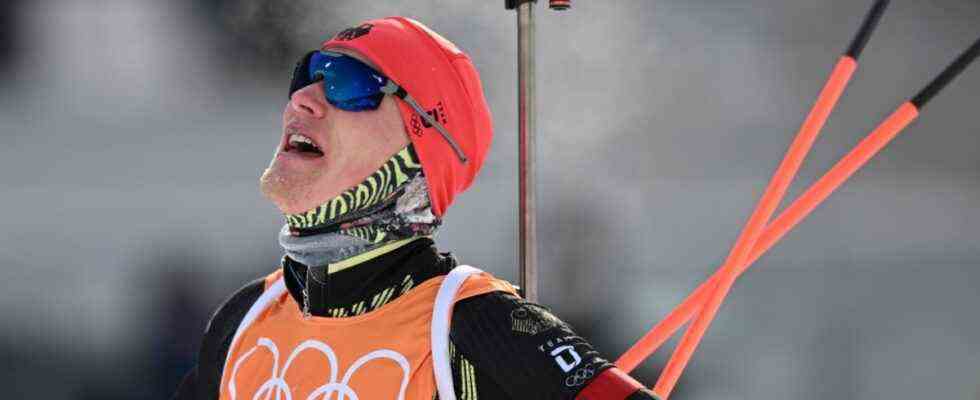The German biathlon scene was a bit in turmoil before these Olympic Games, which can now be shed light on again: It was about the question of which women would be allowed to go to Beijing, it was about fifth place in the team. Should Anna Weidel, 25, get it – or Franziska Hildebrandt, 34? Neither had fully met the norm. One day before the scheduled decision by the German Ski Association, the German Olympic Sports Confederation pressed ahead and called Weidel into the team. After that there was a lot of resentment. Weidel was not used in China, had to spend half the games in isolation, Olympic premiere in the hotel room. But the whole process showed one thing: how difficult it is in Germany to find five biathletes who are good enough for the Olympics.
However, women of all people are taking home two medals from these games. Wasn’t it them that struggled so badly during the season? A third place for Denise Herrmann could be celebrated earlier this season – nothing else. That a gold medal then jumped out in the individual? That already surpassed what could be expected. Her final lap in the relay was one of the reasons that bronze was celebrated in the finish area. There was nothing to celebrate for the German men in the end, despite three podium finishes during the season, for them the pendulum swung the other way. Just two medals at the Olympics are a new doldrums – but also the new normal.
You can rely on Denise Herrmann in Beijing – but at the age of 33 the Olympic champion is in the last phase of her career.
(Photo: Hendrik Schmidt/dpa)
In Arnd Peiffer, the Germans lost the last Olympic champion in the team last year, Herrmann and the medal winners from earlier years such as Benedikt Doll and Erik Lesser are also taking big steps towards the end of their careers. The DSV urgently needs them for the home World Cup in Oberhof in a year, they are fixated on the over 30-year-olds. Behind them, a number of athletes are trying to establish themselves among the best, but the fluctuations are sometimes huge. At an age when others are already celebrating World Cup victories, they are only being introduced to the first division in Germany.
How the cooperation works better can be observed in other nations
Athletes like Magdalena Neuner and Laura Dahlmeier could have been formed into winners by any coach, said women’s national coach Kristian Mehringer before these games. To be so successful at such a young age, no one has copied them internationally. And yet there are structural problems in the German system. Dahlmeier and Neuner went their own way in training – away from the bases in Oberhof and Ruhpolding. Franziska Preuss finished third in the World Cup last year after returning to her youth coach Tobias Reiter. Vanessa Voigt, 24, who almost won bronze in the individual, lacked the competition in Oberhof to make progress in skiing, since last year she has also been training in Ruhpolding from time to time. Above all, individual decisions seem to be the decisive factor in who develops towards the top of the world. Roman Rees celebrated two top ten places in Zhangjiakou, Philipp Nawrath presented fast legs; Even in the IBU Cup, the second division of biathlon, things do not look hopeless for the men. But that doesn’t change anything: A uniform system for bundling, challenging and promoting talent is difficult to identify in German biathlon.
Bernd Eisenbichler, the sporting director, indicated after the last World Cup that the cooperation between the squads could be expanded. You have to “bring in more systematics, adapt the training orientation better and network it. We have to create this transfer of knowledge,” he said. You can see how that works in other nations, you don’t even have to compete with the high-flyers from Norway. In 2015, Wolfgang Pichler brought the Swedish talents (men and women) together at the Östersund location, sorted out the successful ones – in 2018 it worked out with four Olympic medals, exactly as many as now in China. You see each other in training five days a week, and the French also spend 250 days a year together. The team spirit is great, and that has an effect. “It gives you the space to win and lose together,” said Mona Brorsson after winning the Olympic gold with the Swedish relay.
The German problem starts with young people, and Corona has certainly exacerbated it. “It’s a fallacy that everyone knocks and wants to do biathlon,” said Eisenbichler a year ago. The best advertisement would have been the Olympics. The yield doesn’t bode well for the home World Cup in a year’s time.

